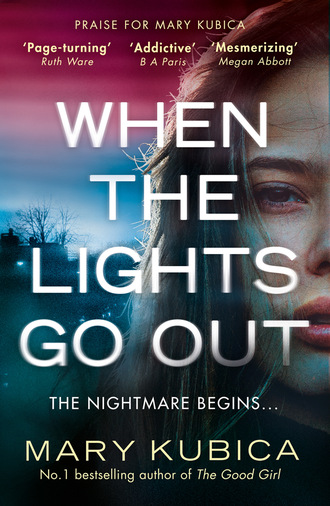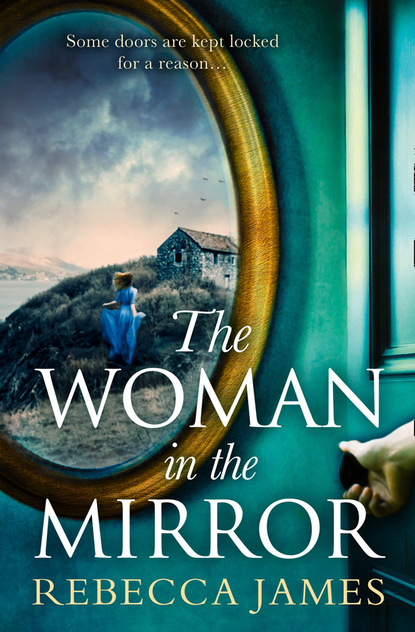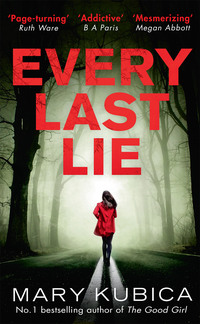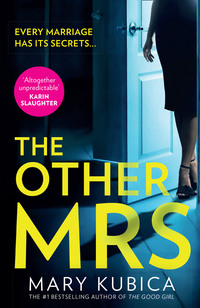
Полная версия
When The Lights Go Out
You might want to look into that, she’d suggested before ending our call, and I couldn’t help but feel shaken up by it even now, hours later. My name on a death database. Though it’s a mistake, of course.
But still I pray this isn’t some sort of foresight. A prophecy of what’s to come.
I gaze out the window as some woman sits behind the wheel of the Kia, steering us through the streets of Chicago. Her name is Lily and she calls herself an apartment finder. The first I’d heard of Lily was days ago, when I’d come home from a cleaning job—hating the feeling of coming home to Mom’s and my empty house alone, wishing she was there but knowing she would never be again, making a flip decision to sell the home and leave. I came home, leaving my bike on the sidewalk, and there, hanging on the handle of our front door, was an ad for Lily’s efficient and cost-free services. An apartment finder. I’d never heard of such a thing, and yet she was just the thing I needed. The door hanger was in-your-face marketing, the kind I couldn’t recycle with the rest of the junk mail. And so I called Lily and we made an appointment to meet.
Lily’s parallel parking skills are second to none, though it seems easy enough for someone like me who’s never driven a car before. Growing up in an old brick bungalow in Albany Park, there was never a need to drive a car. We didn’t have one. The Brown Line or the bus took us everywhere we needed to go. Either that or our own two feet. I also have my Schwinn, Old Faithful, which is surprisingly resilient in even the worst weather, except for, of course, three feet of snow.
I was fifteen when Mom was diagnosed with cancer, which meant that for the time being, my life was on hold, anything that wasn’t essential set aside. I went to school. I worked. I helped with the mortgage and saved as much as I could. And I held Mom’s hair for her when she puked.
She found the lump herself, slim fingers palpating her own breast because she knew sooner or later this would happen. She didn’t tell me about the lump until after she’d been diagnosed with cancer, one mammogram and a biopsy later. She didn’t want to worry me. They removed the breast first, followed by months of chemotherapy. But it wasn’t long before the cancer returned, in the chest and in the bones this time. The lungs. Back for vengeance.
Jessie, I’m dying. I’m going to die, she had said to me then. We were sitting on the front porch, hand in hand, the day she learned the cancer was back. At that point, her five-year survival rate took a nosedive. She only lived for two more, and none of them great.
The cancer, it’s hereditary. Some aberrant gene that runs through our family line, red pegs lined up in my battleship already. Like Mom and her mom before her, it’s only a matter of time before I too will sink.
I claimed the back seat of the Kia after Lily dropped her purse into the passenger’s chair. She drives with one hand on the horn at all times, so she can scare pedestrians out of the way, those she hollers at from behind safety glass to shake a leg and scoot your boot. I have no credit history and no bank account, which I’ve confessed to Lily, and instead carry a pocketful of cash. Her eyes grew wide when I showed her my money, thirty hundred-dollar bills folded in half and stuck inside a wristlet.
“This might be a problem,” Lily said, shrugging her shoulders not at the cash but rather the shortage of credit, the absence of a bank account, “but we’ll see.”
She suggested I offer a landlord more up front to offset the fact that I’m one of those people who keeps all my money in a fireproof safe box beneath my bed. The checks I earn cleaning houses get cashed at Walmart for a three-dollar service fee, and then deposited into my trusty box. I considered signing on with a temp agency once, but thought better of it. There are perks to my job I won’t find anywhere else. Because I’m cleaning houses, I don’t have to pay taxes to Uncle Sam. I’m an independent contractor. At least that’s the way I’ve always rationalized it in my head, though, for all I know, IRS agents are hot on my heels, planning to nab me for tax evasion.
And still, I load my cleaning supplies into a basket on the back end of Old Faithful each day and pedal off to work, earning as much as two hundred dollars some days by cleaning someone else’s home. I do it in peace with my headphones on. I don’t have to make small talk. No one supervises me. It’s the best job in the world.
“Either that,” said Lily as she easily navigated the streets of Chicago, pulling in to an alley behind a high-rise on Sheridan and putting the car in Park, “or you’ll need to find someone to cosign on the loan,” which isn’t an option for me. I have no one to cosign on the loan.
The apartment search is nearly an abject failure.
Lily shows me apartment after apartment. A third-floor unit in a high-rise in Edgewater. A mid-rise on Ashland, newly rehabbed, in my price range though at the high end of it. Unit after unit of boxlike rooms enclosed by four thin gypsum walls, foggy windows that inhibit the light from coming in. The window screens are torn, one stuffed full with an air-conditioning unit, which is supposed to make me happy because, as Lily points out, renters usually have to buy them themselves, those repulsive window units that bar any natural light from entering the room.
The kitchens are tight. The stoves are old and electric. Freckles of mold grow in the showers’ grout. The closets smell like urine. Lightbulbs have burned out.
But it isn’t the mold or the windows that bother me. It’s the noise and the neighbors—strange people just on the other side of drywall, their domestic life partitioned from mine by a paltry combination of plaster and paper. The sense of claustrophobia that settles under my skin as I pretend to listen to Lily as she goes on and on about the two hundred and eighty square feet in the unit. The laundry facilities. The high-speed internet. But all I hear is the noise of someone’s hair dryer. Women laughing. Men upstairs screaming at a ball game on TV. A phone conversation streaming through the walls. The ding of a microwave, the smell of someone’s lunch.
Four days without sleep. My body is tired, my mind like soup. I lean against the wall, feeling the force of gravity as it threatens to tug my heavy body to the ground.
“What do you think?” Lily asks over the noise of the hair dryer, and I can’t help myself.
“I hate it,” I say, for the eighth or ninth time in a row, one for as many apartments as we’ve seen. Insomnia does that too. It keeps us honest because we don’t have the energy to manufacture a lie.
“How come?” she asks, and I tell her about the hair dryer next door. How it’s loud.
Lily keeps composed, though inside her patience with me must be wearing thin. “Then we keep looking,” she says as I follow her out the door. I’d love to believe that she wants me to be happy, that she wants me to find the perfect place to live. But ultimately it comes down to one thing: my signature on a dotted line. What a lease agreement means for Lily is that an afternoon with me isn’t a complete waste of time.
“I have one more to show you,” she says, promising something different from the last umpteen apartments we’ve seen. We return to the Kia and I buckle up in the back seat, behind the purse that’s already riding shotgun. We drive. Minutes later the car pulls to a sluggish stop before a greystone on Cornelia, gliding easily into a parking spot. The street is residential, lacking completely in communal living structures. No apartments. No condominiums. No high-rises with elevators that overlook crappy convenient marts. No strangers milling around on street corners.
The house is easily a hundred years old, beautiful and yet overwhelming for its grandeur. It’s three stories tall and steep, with wide steps that lead to a front porch. A bank of windows lines each floor. There’s a flat-as-a-pancake roof. Beneath the first floor there’s a garden apartment, peeking up from beneath concrete.
“This is a three flat?” I ask as we step from the car, envisioning stacks of independent units filling the home, all united by a common front door. I expect Lily to say yes.
But instead she laughs at me, saying, “No, this is a private residential home. It’s not for sale, not that you could afford it if it was. Easily a million and a half,” she says. “Dollars, that is,” and I pause beneath a tree to ask what we’re doing here. The day is warm, one of those September days that holds autumn at bay. What we want is to climb into sweaters and jeans, sip cocoa, wrap ourselves in blankets and watch the falling leaves. But instead we drip with sweat. The nights grow cold, but the days are hot, thirty-degree variants from morning to night. It won’t last long. According to the weatherman, a change is coming, and it’s coming soon. But for now, I stand in shorts and a T-shirt, a sweatshirt wrapped around my waist. When the sun goes down, the temperature will too.
“This way,” Lily says with a slight nod of the head. I hurry along after her, but before we round the side of the greystone, something catches my eye. A woman walking down the sidewalk in our direction. She’s a good thirty feet away, but moving closer to us. I don’t see her face at first because of the force of the wind pushing her dark hair forward and into her eyes. But it doesn’t matter. It’s the posture that does it for me. That and the tiny feet as they shuffle along. It’s the unassuming way she holds herself upright, curved at the shoulders just so. It’s her shape, the height and width of it. The shade and texture of a periwinkle coat, a parka, midthigh length with a drawstring waist and a hood, though it’s much too warm for a coat with a hood.
The coat is the same one as Mom had.
I feel my heart start to beat. My mouth opens and a single word forms there on my lips. Mom. Because that’s exactly who it is. It’s her; it’s Mom. She’s here, alive, in the flesh, coming to see me. My arm lifts involuntarily and I start to wave, but with the hair in her eyes, she can’t see me standing there on the sidewalk six feet away, waving.
Mom doesn’t look at me as she passes by. She doesn’t see me. She thinks I’m someone else. I call to her, my voice catching as the word comes out, so that it doesn’t come out. Instead it gets trapped somewhere in my throat. Tears pool in my eyes and I think that I’m going to lose her, that she’s going to keep walking by. And so my hand reaches out and latches on to her arm. A knee-jerk reaction. To stop her from walking past. To prevent her from leaving.
My hand grabs a hold of her forearm, clamping down. But just as it does, the woman frees her face of the hair and casts a glance at me. And I see then what I failed to see before, that this woman is barely thirty years old, much too young to be my mother. And that her face is covered in an enormity of makeup, unlike Mom, who wore her face bare.
Her coat is not periwinkle at all but darker, more like eggplant or wine. And it has no hood. As she nears, I see more clearly. It isn’t a coat after all, but a dress.
She looks nothing like Mom.
For a second I feel like I can’t breathe, the wind knocked out of me. The woman tugs her arm free. She gives me a dirty look, scooting past me as I slip from the sidewalk, my feet falling on grass.
“I’m sorry,” I whisper as she skirts eye contact, avoids my stare. She moves to the far edge of the sidewalk where she’ll be two feet away, where I can’t reach her. “I thought you were someone else,” I breathe as my eyes turn to find Lily with her arms folded, trying to pretend that this didn’t just happen.
Of course it’s not Mom, I tell myself as I watch the woman in the eggplant dress move on—faster now, no longer shuffling along but now walking at a clipped pace to get away from me.
Of course it’s not Mom, because Mom is dead.
“You coming?” Lily asks, and I say yes.
I follow Lily as we sneak along a brick paver patio and into the backyard. My heart still beats hard. My nerves are rattled. The backyard opens up to reveal a patio and a yard, and behind that, a red brick garage with a jade green door. “This is why we’re here,” says Lily, gesturing to the garage, and I stop where I am and ask, “You want me to live in a garage?”
“It’s a carriage house,” she says, explaining how there’s living space up above, as is apparently evidenced by a window or two on the second and third floors. “These are quite the find. Some people love them. The minute they come on the market, they’re usually gone. This listing just came in this morning,” she says, telling me how carriage houses used to be just that in the olden days, a place to park a horse and buggy and for the carriage driver to live. Servants’ quarters. They’re tucked away on an alley, camouflaged behind a far less humble house, living in the shadows of something bigger and better than them.
Which seems to me to be just the thing I need. To be camouflaged, to live hermit-like in seclusion, in the shadows of something grand.
“Can we see?” I ask, meaning the inside, and Lily lets us in through a tall, tapered front door and immediately up a flight of rickety stairs.
It’s larger than anything we’ve yet seen, nearly five hundred square feet of living space that is dilapidated and old, everything painted a hideous brown. The wooden floors have taken a beating. The boards are squeaky and uneven, with square-cut nails that lift right up out of the floorboards to a toe-stubbing height. The kitchen lines a living room wall, if it can even be called a kitchen. An old stove, an old refrigerator and a small bank of cabinets lined in a row beside where a TV should go. The lighting fixtures are archaic, giving off a scant amount of light. The place is minimally furnished; just a couple pieces of furniture that look to be about as decrepit as the home.
The bathroom appears to have had minor renovations. The fixtures, the paint are new, but the floor tile looks to be older than me. “You won’t hear a neighbor’s hair dryer from here,” Lily says. The so-called bedroom is up a second flight of precarious stairs, a loftlike space with an arched ceiling that follows the low roofline.
On the top floor I can’t stand upright. I have to hunch.
“This is hardly suitable living space,” says Lily, bent at the neck so she doesn’t hit her head. Her wedge sandals struggle down the wooden steps, her hand clinging to the banister lest she fall. She doesn’t think I will like it, but I do.
Carriage homes like these, Lily says, don’t follow the same rules as prescribed in the city’s landlord-tenant ordinance. I wouldn’t be protected in the same way. They’re overlooked when it comes to regular safety inspections. There’s only one door, which generally goes against fire codes that require two. Because garbage bins are relegated to the alley that abuts this home, it can be loud. The smell, especially in the summer months, can be sickening, she says.
“Rats are bent on eating from garbage bins, which means...” she begins, but I hold up a hand and stop her there. She doesn’t need to tell me. I know exactly what she means.
“What do you think?” Lily asks.
I listen for the sound of women’s laughter. For rowdy men screaming at a TV. There are none.
“How do I apply?” I ask.
Lily takes care of the paperwork. The landlord is a woman by the name of Ms. Geissler, a widow who lives alone in the greystone. We never meet, though Lily provides her with my completed application, a list of references—ladies whose homes I clean—and a letter of recommendation from a former high school guidance counselor. I kiss three grand goodbye, enough to cover first and last months’ rent, plus two more for good measure. As they say, money speaks.
At Lily’s suggestion, I wait in the car while she goes inside to meet with the landlord. I hold my breath, knowing it’s liable the landlord will soon discover the same slipup as the college’s financial aid office. That my social security number belongs to a dead girl. And she’ll deny my application.
But, to my great relief, she doesn’t. It takes less than fifteen minutes for Lily to emerge through the front door of the greystone, a key ring in hand. The keys to the carriage home. I breathe a sigh of relief. As it turns out, Lily let on about my mom and for that reason, Ms. Geissler approved the application without vetting me first. Out of sympathy and pity. Because she felt sorry for me, which is fine by me, so long as I have a place to live. A place that doesn’t remind me of Mom.
As we pull away, I stare out the window and toward the imposing home. It’s masked in shadows now, the sun slipping down on the opposite side of the street, burying the greystone in shade. The house is dignified but solemn. Sad. The house itself is sad.
From the third story, I watch the window shade slowly peel back, though what’s on the other side I can’t see because it’s shadowy and dim. But I imagine a woman, a widow, standing on the other side, watching until our car disappears from view.
eden
July 26, 1996 Egg Harbor
It just so happens that we do have neighbors.
They came this afternoon after Aaron had gone off to work, a pregnant Miranda and her two boys, five-year-old Jack and two-year-old Paul. They came trudging down our gravel drive, Miranda pulling both boys in a red Radio Flyer wagon so that by the time they arrived she was sweaty and spent. She’d come to deliver a welcoming gift.
It was the sound of wheels on gravel that caught my attention as I stood on a ladder, painting the living room walls a pale gray, the windows and doors open to expel chemical scents from the air. This is how I now spend my days when Aaron is away. Unpacking boxes of belongings. Cleaning the insides of closets and cabinets. Painting the home.
I saw them through the window first, heard the tired woman growl at the boys to stop crying and to behave, her cheeks flushed red from the heat and the pregnancy and, I guessed, the desire to impress. Her blond hair blew around her face and into her eyes as she walked. Her body was cemented with a short maternity dress, fastened to her with sweat. On her feet were Birkenstocks. In her eyes, exhaustion and discontent. From the moment I first spied her out the open window I knew one thing: motherhood did not suit her well.
I set down my painting supplies and met them on the porch. Dropping the wagon’s handle, Miranda introduced herself first and then the kids, neither of whom said hello, for they were far too busy clawing their way out of the wagon, elbowing one another for room on the porch step. I didn’t mind. They had blond hair like their mother, and if it weren’t for the apparent age difference could have easily been twins. They fought one another, vying for the right to their mother’s free hand. The bigger of the two won out in the end and as he slipped his hand inside Miranda’s, the little guy fell to the ground in a puddle of tears. “Get up,” Miranda commanded, her sharp voice jabbing through the placid air, apologizing to me for their manners as she tried hard to raise Paul from the ground. But Paul was a deadweight and wouldn’t stand, and as she tugged on his underarms he cried out in pain that she’d hurt him. Tears came pouring from his eyes.
“Damn it, Paul,” she said, pulling again roughly on those underarms. “Get up.”
What she saw were naughty children making a fuss, embarrassing her, making her feel humiliated and ashamed. But not me. I saw something else entirely. I dropped down beside little Paul and held out a hand to him. “There’s a tree swing in the backyard. Let’s go have a ride on it, and let Mommy rest awhile?” I said. His pale green eyes rose to mine, snot gathering along his nostrils, running downward toward his lips. He wiped at his nose with the back of a dirty hand and nodded his sweet little head.
Miranda had walked far to bring us a blueberry loaf, more than a block in the heat. The pits of her dress were damp with sweat, the cotton pulled taut across the baby bump. When she spoke, her voice was breathless, exhausted, burned-out from the energy it took to raise two boys on her own, and she confessed to me that this time—while running a hand over that baby—she was hoping for a girl.
She sat on a patio chair, kicking off her Birkenstocks and resting her swollen ankles on another seat as I poured us each a glass of lemonade, conscious of the dried paint on the backs of my hands.
Miranda’s husband, she told me, is employed by the Department of Public Works. She stays at home with Jack and Paul, though what she always wanted to be—what she used to be in her life before kids—was a medical malpractice attorney. She asked how long Aaron and I have been married and when I told her, her eyebrows rose up in curiosity and she asked about kids.
Do we have them?
Do we plan to have them?
It seemed an intimate conversation to have with someone I hardly knew, and yet there was a great thrill at saying the words aloud, as if cementing them to reality. I felt my cheeks redden as I thought of that morning before dawn when Aaron rose, dreamlike, above me, lifting my nightgown up over my head. Outside it was dark, just after four o’clock in the morning, and our eyes were still drowsy, heavy with sleep, our minds not yet preoccupied by the thoughts that arrive with daylight. We moved together there on the bed, sinking into the aging mattress. And then later, while grinning at each other over mugs of coffee on the dock, watching as the fleets of sailboats went floating by on the bay, I had to wonder if it happened at all, or if it was only a dream.
When Miranda asked, I told her that we’re trying. Trying to have a child, trying to start a family. An odd choice of words for creating a baby, if you ask me. Trying is how one learns to ride a bike. To knit, to sew. To write poetry.
And yet it was exactly what we were doing as Aaron and I made love with reckless abandon, and then followed it up a week or two later with a home pregnancy test. The tests were all negative thus far, that lone pink line on the display screen notifying me again and again that I wasn’t yet pregnant. I tried not to let it get the best of me, and yet it was hard to do. It wasn’t as though Aaron and I minded the time spent trying; in fact, we enjoyed it quite a bit, but with every passing month I yearned exponentially more for a baby. For a baby to have, a baby to hold.
I never mentioned to Aaron that I was taking the pregnancy tests.
I took them while he was at work, watching out the cottage window as his car slipped from view and then, when he was out of sight, rushing to the bathroom, where I closed and locked the door in case he mistakenly left something behind and had to return for it.
And then, when the single pink line appeared on the display screen as it always did, I wrapped the negative pregnancy test sticks up in tissue and discarded them discreetly in the garbage bins.
Miranda beamed when I told her that we’re trying. “How exciting!” she told me, her smile mirroring the one on my own face.
And then, helping herself to a slice of her own blueberry loaf and running a hand over her bump for a second time, she said that her baby and my baby could one day go to school together.
That they could one day be friends.
And it was a thought that filled me with consummate joy. I grinned.
I’d been a lone wolf for much of my life. An introvert. The kind of woman who never felt comfortable in her own skin. Aaron changed that for me.
The idea thrilled me to bits and, in turn, I instinctively stroked my own empty womb and thought how much I wanted my baby to have a friend.
jessie
Tonight makes five days since I’ve been asleep. It’s my first night in my new place. I spend it not sleeping, but rather imagining myself dead. I think of what it must be like for Mom, being dead. Is there blackness all around her, a pit of nothingness, the blackest of the black holes? Or has time simply stopped for her, and there’s no such thing anymore as the living and the dead? Sometimes I wonder if she’s not dead at all but rather alive in the clay urn of hers, screaming to get out. I wonder if there’s enough oxygen in the urn. Can Mom breathe? But then I remember it doesn’t matter anyway.









